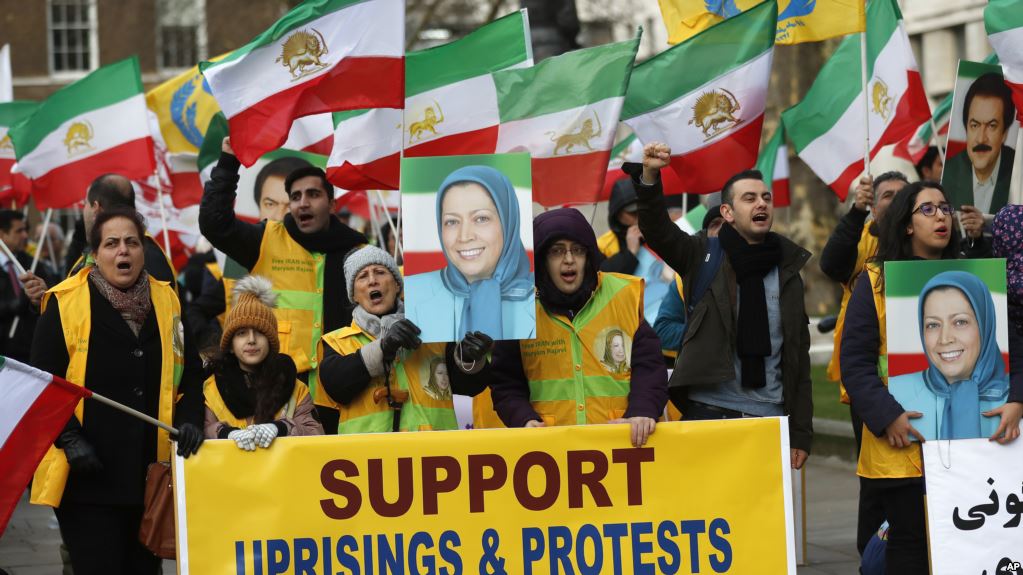This is a historic moment that can be seized to assist peaceful political change in Iran
by Walid Phares

President Obama’s abandonment of Iranians on the streets of Tehran in 2009 was not some random tactical mistake; it was strategic policy that sacrificed democracy in Iran in order to establish an economic and political partnership with the regime, eventually the Iran deal. The mullahs were given the opportunity to crush the popular opposition, export their military and militias to four countries in the Middle East, build a fleet of missiles, and keep their options open to produce and deploy nuclear weapons.
Today, the world is watching — again — the many demonstrations taking place in Iran. People have become increasingly angry at the economic disparities and are now calling for the fall of the regime. This is a historic moment that needs to be seized by the United States and the international community to assist peaceful political change in Iran, a change that would end half of the war on terror and set the track for peace and social prosperity. But what exactly should the U.S. do?
• Speak and speak loudly, shatter the silence. Supportive tweets by President Trump are crucial because they can be read by Iranian youth, women and workers and can serve as a morale booster to Iran’s civil society and to ethnic minorities. However, the president’s tweets should present focused content that can help allies and the Iranian opposition to understand what Washington wants and can do. Presidential tweets can be a formidable game changer if they are prioritized. So are congressional tweets from both parties.
• U.S. diplomacy should raise the bar by speaking up as Ambassador Haley is doing at the U.N. Security Council. But beyond lamenting the actions of the Iranian regime, what is needed next is the formation of a large coalition of countries ready to act at the U.N., flanked by a larger alliance of NGOs ready to take it to communities and social media. If U.S. efforts at the U.N. Security Council are vetoed by Russia, Ms. Haley should call on a meeting in support of the Iranian people. Many Arab, Muslim, Latin American, Asian, and African delegates would participate. Some East European countries may also join in. The U.S. can convene a coalition of the willing to pressure Tehran.
• The Iranian opposition — particularly those in exile — must help the U.S. and the world mobilize by uniting themselves first. The Western based Iranian groups need to stop unproductive competition, think of the now and not of who will seize power later, and appear together and in solidarity on the international scene. Keeping in mind that the real actors on the ground inside Iran, that is the protesters, are the ones to be supported in their quest for democracy. The diaspora should back them up, and once the change is achieved, let a free competition be the fair game for all to form future governments.
• U.S. policy must present a rational and strategic agenda regarding Iran’s protests. The administration’s narrative must be unified, and the White House must tightly coordinate with Congress on a comprehensive strategy. A bipartisan platform needs to be built as a basis for a U.S. national approach to the matter. We strongly suggest the appointment of an “Iran coordinator,” as long as the crisis is ongoing, to maintain cohesiveness between all U.S. government entities and to reach out to regional and international players, as well as the Iranian opposition.
• The U.S. and its international coalition must provide strategic non-military support to Iranians, including efficient means of communication, including powerful Internet access along with broadcasting abilities, both those funded by the U.S. such as radio Farda and VOA Farsi, and private sector networks. It is vital to coordinate with partners in the region to broadcast into Iran in Persian and other languages, and work with humanitarian NGOs to assist the victims of violence in Iran.
• Extend assistance to civil societies in the region, particularly in Iraq, Syria, Lebanon and Yemen, targeted by Iran regime’s militias, so that they can also put pressure on Tehran to cease its interventions in the region.
• Continue to block the shipping of Iranian missiles to countries overseas, including in the Middle East, starting with Yemen.
Now that Iran’s civil society has risen, it is the moral obligation of the international community not only to express solidarity with them, but also to provide support — within the limits of international law — so that Iran’s silent majority can bring modern political change to that ancient country, so cruelly ruled by dictators since 1979.
First published in the Washington Times.
• Walid Phares, a professor of political science, served as foreign policy adviser to presidential candidates Mitt Romney and Donald Trump. He is the author of “The Lost Spring: U.S. policy in the Middle East and Catastrophes to Avoid” (St. Martin’s Press, 2014).
- Like
- Digg
- Del
- Tumblr
- VKontakte
- Buffer
- Love This
- Odnoklassniki
- Meneame
- Blogger
- Amazon
- Yahoo Mail
- Gmail
- AOL
- Newsvine
- HackerNews
- Evernote
- MySpace
- Mail.ru
- Viadeo
- Line
- Comments
- Yummly
- SMS
- Viber
- Telegram
- Subscribe
- Skype
- Facebook Messenger
- Kakao
- LiveJournal
- Yammer
- Edgar
- Fintel
- Mix
- Instapaper
- Copy Link









2 Responses
What if the Ayatollahs have a change of heart, hold free and fair elections, and are reelected on a promise to enforce sharia law properly?
The rulers in Teheran will be very difficult to dislodge since they are religious fanatics. I can’t envision any other way than massive force, such as cruise missiles aimed at their key facilities. Then insist on elections with the secular opposition.